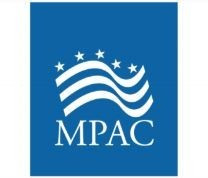
“They are increasing the immigration from countries like India a marginal small amount at the expense of cutting back on immigration from other countries in a much more dramatic fashion—I don’t think there’s equity in that.” Senator Durbin, WSJ September 7

“The bill was introduced in February. It was placed on a Consensus Calendar last month and now on a suspension calendar today. Neither the subcommittee nor full committee had a hearing… So those of us who support the intent but have concerns about the factual text have no opportunity to formally hear from agencies affected by this legislation or even outside groups and individuals affected…. don’t send a bill just because it makes us feel good and was promised to somebody… My issue with this bill is that it is not right… it is definitely not ready for the suspension calendar… If the cosponsors would simply read the bill and understand the problems with the agencies and then go back to the communities advocating for this, they cannot look them in the eye and say, this is your fix.” (Congressman Doug Collins , Ranking Republican on House Judiciary Committee), just before the House passed HR.1044 July 10.
Opposition Letter Excerpts

“… We are highly skeptical of the actual effectiveness of reducing the backlog, as claimed by S.386, and are concerned about the unintended consequences on our community members…”

“S.386 would impose unintended consequences upon non-backlogged countries such as Greece, and instead, tilt the scales in favor of countries with a heavy backlog”
“[S.386] would devastate the abilities of scientists to conduct life-saving research because not having LPR disqualifies them from a majority of research grant opportunities. Simply stated, they would be unable to continue with their research.”

“This bill would eliminate the per-country cap for employment-based immigrant visas, exacerbating health workforce shortages that most impact vulnerable patients in rural and urban areas.”
“[S.386] will adversely impact the immigration of nurses from many countries, especially those from the Philippines. As a result, it will choke the ability of America’s hospitals and health systems to provide vital care in communities across the country.”

“If H.R. 1044 and S. 386 become law, the backlogs will continue to grow, not just for everyone, but for Africans, and for Indian and Chinese too. Taking a problem for natives of one country and making sure all countries share the same fate is not a solution for anyone, and certainly not in the national interest. More green cards to address the backlog is the only sensible answer.”

“This is simply not legislation that should be enacted without hearings and the opportunity for many constituents – including Korean Americans – to have their say and be heard.”

“Eliminating the per-country cap for immigrant visas would have a crippling effect on hospitals and health systems because foreign-trained nurses entering the U.S. each year to fill critical nursing jobs would be reduced by 77 to 100 percent over the next five years and beyond. If this happens, health care for Americans would clearly suffer.”

“… writing to oppose S. 386 and join other stakeholders in the health care sector, such as the American Hospital Association and Philippines Nurses Association of America, to ensure that this bill does not pass the Senate in its current form.”
“S. 386 would mean a return to a system where the vast majority of employment-based permanent immigrants come from a few select countries in a single region of the world.”

“We are writing on behalf of our students, of academic programs, and of the future of American scientific progress and workforce concerning S. 386 and HR. 1044, the Fairness for High-Skilled Immigrants Act.”

“Among South Asian countries, this [bill] puts green card applicants from Bangladesh, Pakistan, Sri Lanka, Nepal at a much greater disadvantage.” and “makes it even harder for countries like Iran, Libya, Somalia, Syria, Yemen, North Korea, and Venezuela […] Such a proposal all but closes the door on nationals from these countries who want to remain in the country or be reunited with their families.”
“H.R. 392 [ or S386] ignores the real problem, which is a significant mismatch in immigrant visas overall to meet the demand for foreign-born, high-skilled workers across industries.”

“[IEEE-USA] recognizes that doing so [removing country caps] creates problems for EB applicants who are not from India and China. Moreover, Sen. Lee’s bill [S.386] fails to address the most fundamental problem with the EB system: it just isn’t big enough.”

“The statewide international student committee within our union has expressed its opposition to this bill [S.386] that promotes such a divisive strategy, making those from different countries of origin compete for a smaller pool of available permanent residency positions once they leave the university. This may force international students from variety of countries to peruse work outside of the U.S. after graduating or to apply elsewhere in the first place, given the bleak prospects of future residency in the U.S. “

“Yet the problem of extreme delays in making Americans out of immigrants chosen by their employers for their merit – a minimum wait of 9.5 years in the EB-2 category, for example – is very real. The zero-sum approach of abolishing per-country distribution would not solve this – in ten years, the minimum wait in this category would be more than 12 years, and there would be more people waiting from every nation on earth. Those impacted by the Muslim Ban and subjected to single-entry visas would be kept inside the country while their family is kept out, which will effectively prevent them from seeing their family during this period.”
“On behalf of millions of American Muslims, with ancestors and natives from every nation, we write to urge that Congress resist the temptation to divide our country with zero-sum legislative “Solutions” that solve nothing, regarding the very real problem of visa backlogs, particularly for employment-based green cards, and oppose H.R. 392. [now S.386]”

“Immigrants have started more than half (44 of 87) of America’s startup companies valued at $1 billion or more, and totaling to $112.8 billion, with 20,026 employees.”
“Oppose H.R. 1044, Fairness for High Skilled Immigrants Act of 2019, to continue attracting skilled immigrants of diverse national origins to pursue higher education in the U.S.”

“… But the impact of this bill would be much, much worse. From 2023 until well into the 2030s, there will be zero EB-2 visas for the rest of the world. None for China, South Korea, Philippines, Britain, Canada, Mexico, every country in the EU and all of Africa. Zero. It would choke off green cards for every profession that isn’t IT – health care, medical research, basic science, all kinds of engineering; chemists, physicists – people working on Artificial Intelligence and climate change mediation technologies.”

“… If passed, the Yoder amendment [i.e. S86] would nullify many of our members’ efforts to recruit essential nursing Staff abroad. In view of the severe and growing shortage of nurses in this country and particularly in the long-term services and supportseld, the amendment’s impact would be devastating …”

“Considering that American businesses and highly skilled Canadian citizens may have relied on existing immigration processes in commencing or continuing U.S.-based employment, this [bill S.386] may lead to premature and disruptive departures, uncertainty, and other economically disadvantageous outcomes.”

“Clearly S. 386 is not designed with America’s best interest in mind. If enacted, this legislation will prevent many valuable foreign students or potential immigrant workers with critical skills and knowledge from ever coming to US.”
